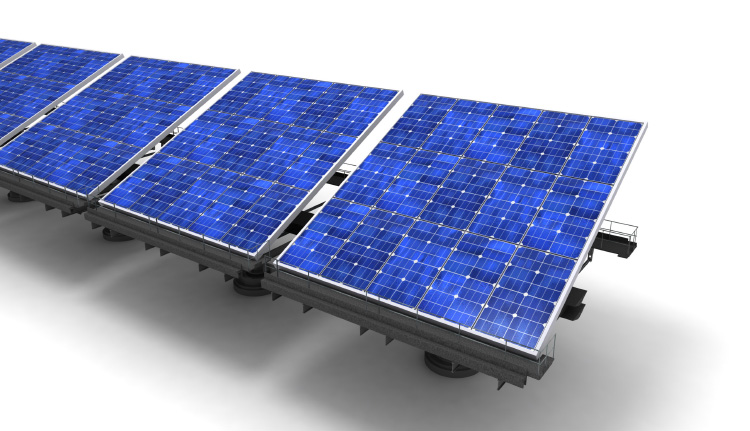Solar energy is the rays of light and heat emanating from the sun, and humans have exploited and benefited from it since ancient times using technological means that are constantly changing. Techniques for using solar energy include the use of thermal energy from the sun, whether for direct heating or as part of an automated conversion process for movement or electrical energy, or for generating electricity through photovoltaic phenomena using photovoltaic panels, in addition to architectural designs that depend on exploiting solar energy. These are technologies that can contribute significantly. In solving some of the world’s most pressing problems today.
Nowadays Solar energy is considered to be one of the important solutions in the search for renewable and sustainable energy sources. As its popularity grows, so does the legal framework for its development, deployment and use. To control and regulate those energy systems some laws were established, covering land use, energy production, financial incentives and environmental considerations.
– The conditions and controls for the exchange of electricity generated from solar cells are stipulated by producers and electricity distribution companies, after the approval of the Electricity Utility and Consumer Protection Regulatory Agency on the new terms and controls for the exchange and use of electrical energy produced from solar energy, known as the net metering system. The following are the new controls:
-The location of the station project that is contracted under the net metering system must be within the boundaries of the client’s property.
-The contracting customer with a net metering system must not be licensed to distribute electricity for the same project.
-The total installed capacity of the solar energy stations connected to the network of one distribution company and contracted with a net metering system shall not exceed 1.5% of the maximum load of the distribution company registered with the metering meters during the fiscal year preceding the contract.
-Setting a maximum limit for the total capacity of solar energy projects that will be contracted under the net metering system throughout the Republic after the entry into force of these rules (provided that the total capacity does not exceed 300 megawatts, including the currently existing capacities) as follows: 125 megawatts for capacities less than or equal to 500 kilowatts.
100 megawatts for capacities greater than 500 kilowatts and up to 20 megawatts.
The installed capacity of the station
– contracted under a net metering system – shall not exceed the maximum customer consumption load during the fiscal year preceding the date of commercial operation of that station.
-The total solar capacity contracted under the net metering system and owned by any licensed entity or one of the distribution company customers and linked to the distribution networks shall not exceed 25 megawatts, with a maximum of 20 megawatts for one project.
-In the case of connection to the medium voltage network, an additional study must be conducted by the distribution company or with the help of a third party to evaluate the impact on the network at the customer’s expense, provided that it is ensured that there is no reverse current feeding the transmission networks of the Egyptian Electricity Transmission Company or one of its customers in any area. In any case.
-The surplus energy produced from the contracted solar station with a net metering system is accounted for annually, after settling the customer’s consumptions at the end of June of each calendar year, at the energy purchase price (piaster/kWh) according to the last contracted purchase price between the Egyptian company. To transmit electricity and produce solar energy.
-The customer pays a fee to integrate the produced energy (in exchange for integration), which represents the cost of integrating renewable energies into the network (according to its voltage), determined by the agency and reviewed and adjusted periodically.
Documents required to connect a solar power station owned by a qualified company with a capacity greater than 500 KW and up to 20 MW:
-The company’s qualification certificate should be issued by the New and Renewable Energy Authority.
-Electricity production license issued by the Electricity Utility and Consumer Protection Regulatory Authority.
-A contract between the implementing company and the project owner.
-A copy of the national ID card, tax card, or commercial registry of the project owner.
-A copy of the tax card and commercial register of the implementing company.
-A copy of an electricity receipt
-A diagram for installing solar cells at the project site is required to be approved by a union engineer.
-Technical specifications of the project and a copy of the catalogs.
-Test certificates for project components.
– A study of the effect of the solar cell station on the grid voltage during times of no or low loads.
– A study of the effect of a solar cell station on the short-circuit current of the electrical network.
-A study of the maximum load of the solar cell station, which will be exported to the network in times of no or low loads.
– A study of the effect of a solar cell station on the short-circuit current of the electrical network.
– A study of the maximum load of the solar cell station, which will be exported to the network in times of no or low loads.
-Electrical diagram of the project and the proposed connection point.
– A declaration that he did not violate the Unified Building Law and that he bears civil and criminal liability for violating the building requirements for this project.
-Power purchase agreement between the eligible company and the customer.
Laws and regulations vary from one country to another. There is a wide variety of national regulations and laws depending on the conditions of each country. Most countries provide policy support for renewable energy, including solar, typically in the form of feed-in tariffs, tax incentives and net metering policies.
Eng. Mohamed Abdelraouf
Production General Manager at Khalda Petroleum Company








